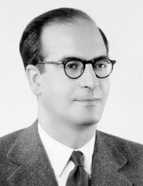

His academic activity at an international level continued through all of this period. In 1980 he took part in the Third International Meeting of Camonistas, in Coimbra, and the colloquium of the Society for Spanish and Portuguese Studies, in New York. In 1982 he organized a course for university outreach in São Paulo. In 1985, at the First Congress on Strategic Options in Post-Imperial Portugal, organized by the Institute for Strategic and International Studies, at the Calouste Gulbenkian Foundation, he gave a lecture on “Strategic and International Options in Contemporary Portugal: A Critical Perspective”, subsequently developing different aspects of his interpretation of Portugal’s contribution to the European Union. In 1988 he undertook an academic mission with the Portuguese Academy of History for the Comité International des Sciences Historiques. In 1990 he took part in the conference at the George Washington University on “Portugal and Spain of the Navigators: The Age of Exploration”, giving a paper on “The Discoveries as an Experimental Realization”, and in Rome, at the invitation of the European Science Foundation, under the programme “Origins of the Modern State”, he gave a paper on “The State in Historiography and in Contemporary Theory and Philosophy”. In the same year he was the official speaker at the Portuguese Royal Bureau of Reading, in Rio de Janeiro, on Portugal Day (10 June). In 1991 he organized a course at the University of Cologne, and went to Zimbabwe to deliver a lecture on “Portugal, the Discoveries and Africa”. In 1993 he gave paper on “The Mediterranean as the Cradle of European Civilization”, under the auspices of the Europäisches Forum Alpbach.
From his academic and scientific curriculum we can see the importance attributed by JBM to contacts with foreign scientific research and to the participation of Portuguese historians in specialist international congresses. Especially noteworthy in his own activities were the researches he made in the Paris archives in 1959, in London in 1959 and in 1970, a year when he gave particular attention to the history of business and to Portuguese relations with the English, with Jews, and other nationalities. He maintained an engagement in the world of international research all his life, which was evident both in the way he kept up to date and involved with public and international debates and, more importantly, in the international dimension to his work, treating the history of Portugal with the depth and importance appropriate to the European and global scale.
